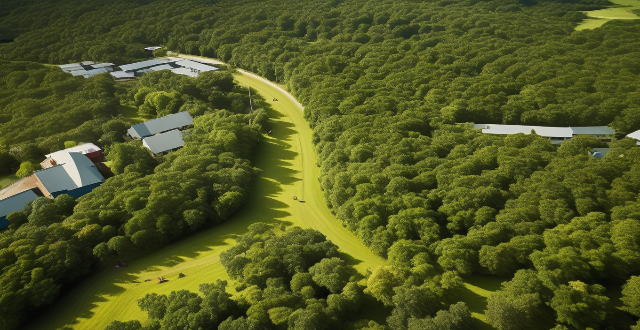Climate change has a profound effect on job creation in developing countries, where agriculture and natural resources are key to livelihoods. Impacts include decreased agricultural productivity due to loss of arable land, crop failures, and pest outbreaks. Natural resource-based industries like forestry, fishing, and tourism also suffer from climate-related disruptions. However, there's increased demand for jobs in renewable energy and energy efficiency as part of efforts to combat climate change. Health and safety risks rise in traditional jobs due to extreme temperatures and weather patterns. Infrastructure development for adaptation and disaster response creates construction and engineering jobs. Migration, both internal and international, is another consequence of climate change, leading to shifts in urbanization and economic structures. Addressing these challenges requires innovative solutions and international cooperation to ensure sustainable and resilient economic development.

The Impact of Climate Change on Job Creation in Developing Countries
Climate change is a global issue that affects all aspects of life, including the economy. In developing countries, where the majority of the population relies on agriculture and natural resources for their livelihoods, climate change can have a significant impact on job creation.
1. Decreased Agricultural Productivity
- Loss of Arable Land: Rising temperatures and changing weather patterns can lead to droughts and desertification, reducing the amount of land suitable for farming.
- Crop Failures: Extreme weather events such as floods, storms, and heatwaves can damage or destroy crops, leading to reduced yields and food insecurity.
- Pest and Disease Outbreaks: Warmer temperatures can increase the prevalence of pests and diseases that affect crops, further reducing agricultural productivity.
2. Disruption of Natural Resource-Based Industries
- Forestry: Droughts, fires, and pests can devastate forests, affecting the timber industry and related jobs.
- Fishing: Changes in ocean temperatures and acidity levels can disrupt fish populations, impacting fisheries and coastal communities.
- Tourism: Environmental degradation, such as coral bleaching and beach erosion, can negatively affect tourism industries dependent on natural attractions.
3. Increased Demand for Alternative Energy Jobs
- Renewable Energy: As countries seek to reduce their carbon footprint, there is an increased demand for workers in the renewable energy sector, such as solar and wind power installation and maintenance.
- Energy Efficiency: Jobs related to improving energy efficiency in buildings and industry also see growth as part of efforts to mitigate climate change.
4. Health and Safety Risks in Traditional Jobs
- Heat-Related Illnesses: Workers in outdoor occupations may face increased health risks due to higher temperatures and heatwaves.
- Occupational Hazards: Changes in weather patterns can introduce new hazards or exacerbate existing ones, such as the risk of injury during extreme weather events.
5. Infrastructure Development and Maintenance
- Adaptation Projects: Efforts to adapt to climate change, such as building sea walls or improving irrigation systems, can create construction and engineering jobs.
- Disaster Response: The need for emergency response teams and infrastructure repair after climate-related disasters also provides employment opportunities.
6. Migration and Urbanization
- Internal Migration: People may move from rural areas affected by climate change to urban centers in search of work, leading to urbanization and its associated economic shifts.
- International Migration: Some individuals may choose or be forced to migrate internationally due to climate impacts, which can result in both brain drain from developing countries and potential job creation in destination countries.
In conclusion, while climate change poses significant challenges to job creation in developing countries, it also presents opportunities for new types of employment in sectors focused on adaptation, mitigation, and renewable energy. Addressing these challenges requires a combination of local innovation, international cooperation, and proactive policymaking to ensure that economic development is sustainable and resilient in the face of a changing climate.